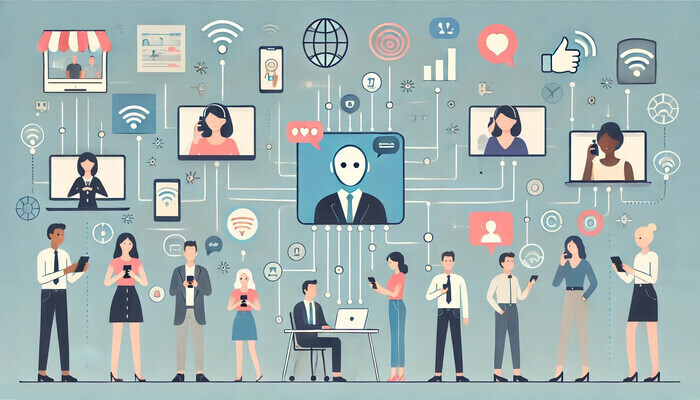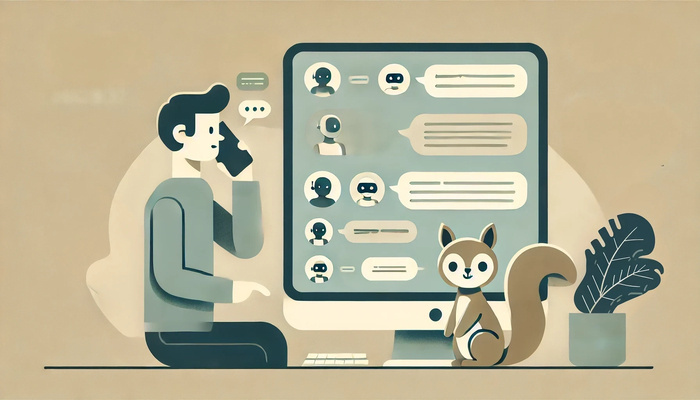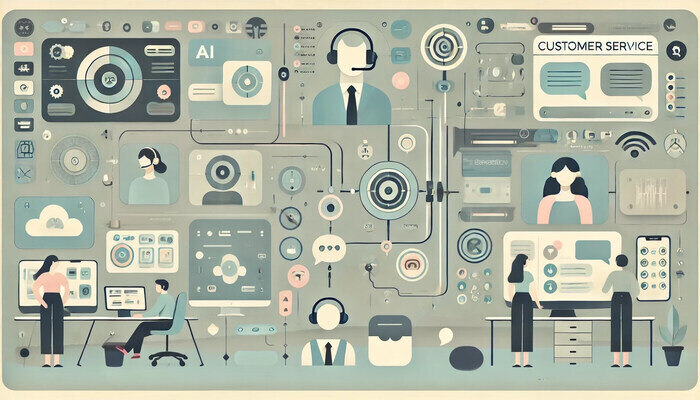
Customer service is the lifeline of every enterprise in a fast-moving, technology-driven world. Companies are constantly seeking new avenues for customer satisfaction due to the growing demand for instant responses. As the world rapidly embraces AI, customer service is evolving along with it. This article will explore the types of customer service, current trends, and how AI is making a significant impact.
Traditional Customer Service Channels
Before diving into the latest trends, let’s take a look at the traditional customer service channels that have existed for decades.
Support
This type of customer service is the most common, where customers call, email, or even visit the company for assistance. It operates during business hours and helps customers with product-related queries, troubleshooting, and more. Often, support is structured in tiers, so if a representative cannot resolve an issue, it gets escalated to a more experienced team member.
Email Support
Among the various communication methods, email is particularly effective for customers who prefer written communication. It allows them to send detailed messages about their problems and receive responses from the support team. Additionally, email support provides a paper trail that can be useful for tracking issues and referring back to previous conversations.
These traditional customer service channels have served as the backbone of customer support over the years, providing customers with convenient ways to reach companies for assistance. While these touchpoints remain relevant in today’s market, their limited hours of operation and potential waiting times have paved the way for new and innovative customer service tools.
The Rise of Digital Customer Service
With the advancement in the ways customers interact with companies, customer service has taken the course to use technology. Therefore, some of the most popular digital channels for customer service include:
Live Chat
Live chat is an instant messaging system where customers communicate with support agents directly on a company’s website or through their mobile app. It is one of the most popular contact channels among customers because they receive instant responses. The interaction is also more personal, as customers get to engage with a human agent who empathizes with their concerns and provides closer support.
Chatbots
Chatbots are AI-powered programs that use natural language processing (NLP) to converse with customers in a human-like manner. They operate around the clock and can instantly respond to frequently asked questions. Moreover, they can deflect requests from human support agents, allowing those agents to focus on more complex issues.
In other words, digital customer service channels revolutionize the way companies communicate with their customers, providing support that is faster, more convenient, and personalized. Through these channels, businesses can enhance customer satisfaction, lower support costs, and gain a competitive advantage in today’s digital landscape.
The Future of Customer Service: AI-Powered Support
Without a doubt, AI-powered customer service is the future. With the rapid advancement in technology, companies are increasingly using AI to serve customers with personalization and effectiveness. Some of the latest trends in AI-powered customer service include:
Self-Service
Self-service is a category of customer service that empowers customers to find solutions independently, without human assistance. AI-powered self-service platforms utilize machine learning algorithms to offer personalized recommendations and solutions. By providing customers with quick and straightforward access to the information they need, companies can reduce support costs and enhance customer satisfaction.
Answer Genius by ClickHelp
AnswerGenius is a clever AI assistant in ClickHelp platform designed to enhance your documentation by streamlining the process of finding answers for your readers. You can configure AnswerGenius to be accessible to all users or limit it to those who are logged in. Additionally, it can utilize restricted documents, so if a Power Reader has access to specific content, the AI will only provide information from those sources. It does not have access to any publications that the current Power Reader cannot view, ensuring security and confidentiality. Furthermore, AnswerGenius always includes links to the source topics in its responses, making them more relevant, and trustworthy. You can also customize the style of AI assistant by adjusting its name and greeting texts in the settings. Beyond plain text, AnswerGenius can also present data in concise, structured lists, improving the user experience. This feature helps automate routine queries, reducing the workload for support teams and allowing them to focus on more complex issues that require empathy and human judgment.
In other words, AI-powered customer service is transforming how companies interact with their customers, delivering quicker, more personalized, and more effective support. As AI technology continues to evolve, we can expect even more innovative applications in customer service, leading to greater customer satisfaction and loyalty.

Benefits and Drawbacks of AI-Powered Customer Service
AI-powered support has provided numerous positive features for both organizations and customers. Some major benefits of AI in customer service include:
- 24/7 support: AI-powered customer service platforms can operate 24 hours a day, 7 days a week, with no breaks or downtime. This ensures that support is available to customers at any time, regardless of their geographical region or time zone.
- Personalized support: AI-driven customer service platforms utilize machine learning algorithms to deliver personalized responses to customer queries. This enhances customer satisfaction and loyalty, as they feel their concerns are being addressed uniquely.
- Increased efficiency: AI-driven customer service platforms can automate routine inquiries from customers, allowing human agents to focus on more complex issues that require empathy and human judgment. This improves the efficiency of customer support operations and helps reduce support costs.
- Improved accuracy: AI-driven customer service platforms ensure that responses to customer queries are accurate and consistent, minimizing the risk of human error.
However, AI-powered customer service has its share of disadvantages as well. Some of the significant challenges are as follows:
- Data quality dependency: AI-driven customer service platforms are only as good as the data on which they have been trained. If the information is incorrect or incomplete, the platform may provide inaccurate or unhelpful responses.
- Security concerns: AI-driven customer service platforms can be targeted by cyber threats, potentially exposing sensitive customer information and undermining trust in your organization.
- Limited emotional intelligence: Most AI-powered customer service platforms lack emotional intelligence, making it challenging to show empathy toward customers in cases of emotional distress.
Ultimately, AI-powered customer service has the potential to revolutionize customer-company interactions through quicker, more personalized, and effective support. However, it is important to remain vigilant about potential drawbacks and work on mitigating them by investing in high-quality data and robust security measures.
As AI technology continues to improve, we can expect even more innovative applications in customer service, leading to better customer satisfaction and loyalty.
The Future of Human Customer Service
The rise of AI-powered customer service is not the end for human customer service. Most likely, AI will not completely replace humans; instead, there will be a balance in different areas of operation, including:
- Email support: AI-powered email support platforms can instantly answer frequently asked questions, easing the load on human support agents. This allows human agents to handle more complex, emotionally charged issues that require empathy and human judgment.
- Self-service: AI-driven self-service platforms can provide the right recommendations and solutions, minimizing the need for human intervention. However, human support agents will still need to address exceptional cases that require a more nuanced, human touch.
- Complex issues: Human customer support agents will be essential for addressing complex issues that require a deep understanding of a customer’s situation and empathy. While AI-powered customer service platforms may offer relevant information and suggestions to support agents, human judgment and decision-making will remain crucial.
- Emotional support: Human customer service agents will be deployed to provide emotional support to customers in distress or frustration. While AI-driven platforms can offer a certain degree of emotional support, the need for human understanding and empathy is critical in establishing trust and loyalty.
While AI will certainly change the role of human customer service, it will not eliminate the need for it altogether. Human support agents are vital for providing emotional support, resolving complex issues, and fostering trust and loyalty among customers.
In the future, human customer service will focus on high-touch, high-empathy interactions, rich in deep situational understanding of both customers and their needs.

Conclusion
The world is becoming increasingly hooked on artificial intelligence applications, and customer service is no exception. AI-powered customer service platforms have already taken center stage, handling customer queries in a personalized and speedy manner. While it’s believed that AI could replace humans in certain areas, complex issues still require a human touch and empathy. Therefore, human customer service will remain highly relevant.
Good Luck with your technical writing career!
Author, host and deliver documentation across platforms and devices.



